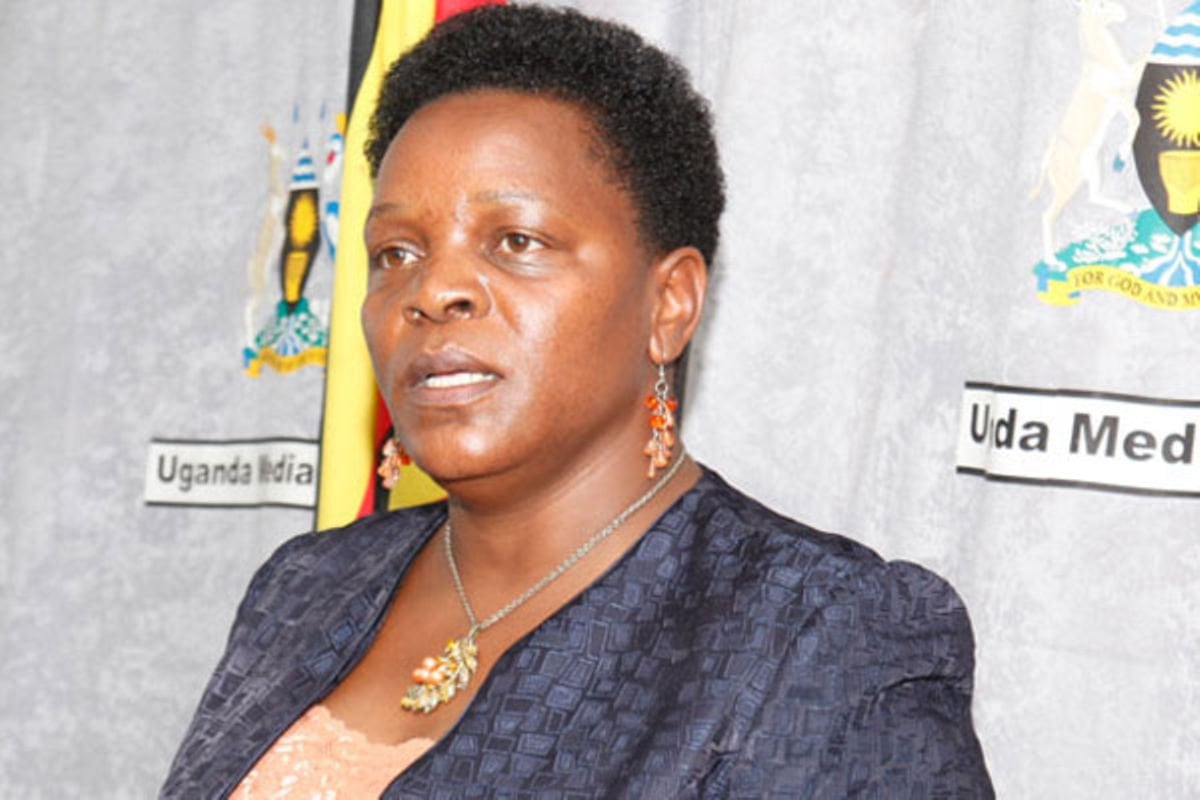Govt urges men to champion family planning campaign

The State Minister for Gender, Ms Peace Mutuzo. PHOTO/ FILE
What you need to know:
- In 2017, Uganda became signatory to the Family Planning 2020, which is now Family Planning 2030.
- The State Minister for Gender, Ms Peace Mutuzo, in the company of assistant commissioner in charge of reproductive and infant health, Ministry of Health, Dr Richard Mugahi, and several other stakeholders launched the projects last week.
Ministries of Health and that of Gender, Labour and Social Development in partnership with Reach a hand Uganda, an NGO, have urged men to spearhead family planning campaigns to reduce unwanted pregnancies.
The proposal was made during the launch of MenPlus and the U Decide projects in Kampala at the weekend.
The State Minister for Gender, Ms Peace Mutuzo, in the company of assistant commissioner in charge of reproductive and infant health, Ministry of Health, Dr Richard Mugahi, and several other stakeholders launched the projects last week.
They aim at boosting male involvement in family planning use and improve access to family planning services for women.
Activists encouraged men to get vasectomy once they have attained the number of children they want.
They said unwanted pregnancies in young girls, which lead to unsafe abortions, can be avoided, especially when men step up.
A statement released by Reach a hand Uganda revealed that more than 345 vasectomies were done among men in more than nine districts during the first phase of the MenPlus project.
The project focuses on Kampala, Mbarara, Arua, Lira, Bushenyi, Rwampara, and Soroti districts.
The U Decide project will majorly focus on Kasese and Bunyangabu districts.
Under the project, 24 public health facilities will be supported to strengthen health systems through training, mentorship of health workers and providing equipment for better service delivery.
Women, especially in rural areas will also be empowered to decide when and how many children they want to have depending on their family’s financial capabilities.
According to Ms Sharifah Lubega, a family counsellor, family planning also benefits children because they are able to get all the love and attention from the mother before another child comes into the picture.
As a parent, you are able to fully focus on the child, give them undivided love and attention at least for the first crucial months or year of the child’s life,” she said.
“Closing the gap in the unmet need for contraceptives will reduce the number of abortions in the country, especially unsafe and unnecessary abortion since the pregnancy will be avoided in the first place,” Ms Lubega added.
According to Mr Edison Twesigye, another family counsellor, men who have embraced family planning are able to have time for personal advancement financially, emotionally and career wise.
Currently, there is no regulatory policy that incorporates men to be part of family planning. The government was also urged to integrate HIV/Aids prevention policies and strategies to reduce the number of infections.
According to the World Health Organisation, 214 million women in developing countries struggle to avoid pregnancy but are not using a modern contraceptive method for reasons not limited to access to contraception, a fear or experience of side-effects, cultural or religious opposition, and gender-based barriers.
2030 family planning targets
In 2017, Uganda became signatory to the Family Planning 2020, which is now Family Planning 2030. Some of its commitments include:
-To increase equitable access and voluntary use of modern contraceptive methods for all women and couples
-To increase funding for adolescent sexual and reproductive health programmes
-Address family planning myths and misconceptions through evidence-based sexual and behavioural change communication





